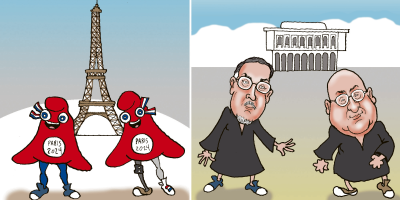The German Foreign Office has advised citizens to avoid travel to Bangladesh. “There is a curfew in place following violent clashes, and internet and mobile services are blocked,” the ministry said in an X post Sunday.
The office expects the situation in the South Asian nation to get worse. “More than 100 people have already died during the demonstrations and protests,” the report said.
Germans already in Bangladesh have been advised to register with the crisis preparedness list.
Hundreds arrested in civil unrest
The US State Department had also warned Americans on Saturday not to travel to Bangladesh and announced it would begin removing some diplomats and their families from the country.
The advisory came soon after a new curfew was imposed on Friday, following days of deadly protests that saw more than 105 people killed.
On Monday, the French AFP news agency reported, citing a police officer, that more than 500 people were arrested in the unrest.
“At least 532 people have been arrested over the violence,” Dhaka Metropolitan Police spokesman Faruk Hossain told AFP. “They include some BNP leaders,” he added, referring to the opposition Bangladesh National Party.
Why did protests erupt in Bangladesh?
Bangladesh has been embroiled in country-wide protests over a reservation system, which had been abolished in 2018 following large-scale student demos.
The old quota system reserves more than half of the civil service positions for specific groups.
A court reintroduced the system, following which mass protests began in early July as many young people feel they are at a disadvantage due to it.
The Supreme Court on Sunday weakened the plan for reintroducing the system. However, student leaders are seemingly not satisfied with the changes.
Armed forces have been deployed across the country as police could not bring the riots under control. Internet has been restricted in the country since Thursday.
Bangladesh top court cuts controversial job quotas
tg/wd (dpa, AFP)














